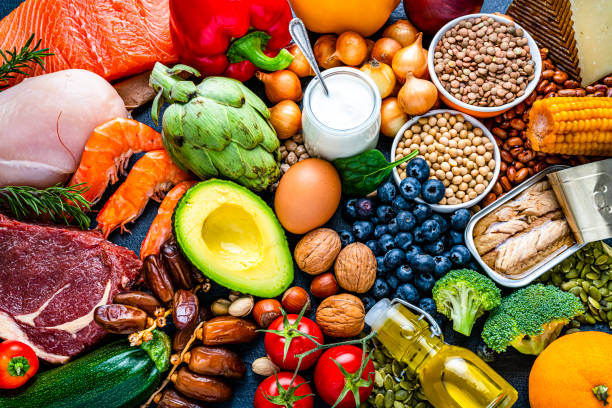In Malta, where fresh, local produce is readily available, adopting smart meal planning can be a game changer for your health, your budget, and even the environment. With food prices rising and the growing need for sustainable practices, meal planning is more important than ever. It’s a simple way to reduce food waste, eat more nutritious meals, and save money while also contributing to a more eco-friendly lifestyle.
In this blog, we’ll explore how you can start smart meal planning, make healthier choices, and cut down on food waste in Malta, all while sticking to your budget.
Why Smart Meal Planning Matters 💡
Meal planning isn’t just about convenience it’s a way to take control of your health, your spending, and your environmental footprint. Here’s why meal planning is essential:
- Save Money: By planning meals ahead of time, you’re less likely to buy items you don’t need. You’ll avoid the temptation of impulse purchases and be more strategic about how you shop.
- Eat Healthier: With a clear plan, you’re more likely to incorporate balanced meals that are rich in nutrients. You can avoid the temptation of takeout or fast food, which are often high in sodium, unhealthy fats, and preservatives.
- Reduce Food Waste: Planning your meals ensures you use ingredients before they spoil. You can repurpose leftovers, use excess produce, and get the most out of what you buy, reducing the amount of food that ends up in the trash.
Meal planning is a win-win, and it’s easier to implement than you might think. Let’s break down how you can get started.
Tip 1: Create a Weekly Meal Plan 📝
The foundation of smart meal planning is creating a weekly meal plan. This gives you a roadmap for the week and helps ensure you’re not left scrambling for dinner ideas at the last minute. Here’s how to do it:
- Assess Your Week: Look at your schedule and determine which days you have more time to cook and when you’ll need quick, easy meals. If you have a busy week ahead, plan for simple meals like salads, stir-fries, or soups that can be made quickly and in large batches.
- Plan Breakfast, Lunch, and Dinner: It’s important to think about all meals of the day, not just dinner. For example, plan your lunches and breakfast meals ahead of time to ensure you have enough variety and nutrients throughout the day.
- Incorporate Leftovers: Planning for leftovers is a smart way to cut down on time spent cooking and reduce waste. If you make a large batch of soup or stew, it can easily be turned into lunches for the next day or two.
Tip 2: Use Local, Seasonal Produce 🍅
Malta’s climate makes it the perfect place to find fresh, local produce all year round. Seasonal fruits and vegetables are not only cheaper, but they also taste better and are more nutritious. By choosing local, you’re supporting Maltese farmers and reducing your carbon footprint.
- Shop at Local Markets: Visit local markets, such as the ones in Valletta, Marsaxlokk, or Victoria, for fresh produce. You’ll be able to pick up seasonal fruits and vegetables at lower prices, and you’ll often find unique, locally grown items.
- Plan Around What’s In Season: By focusing on what’s in season, you can take advantage of better deals and ensure that your meals are packed with the freshest ingredients. For example, in summer, Malta sees an abundance of tomatoes, peppers, cucumbers, and melons, while winter is a great time for root vegetables like carrots, potatoes, and beets.
Tip 3: Shop Smart and Stick to a List 🛒
One of the biggest pitfalls when shopping is wandering the aisles without a list. This often leads to unnecessary impulse buys that can derail your budget and meal plan. To avoid this:
- Make a Shopping List: After you’ve planned your meals for the week, make a detailed shopping list. Stick to it! This ensures you buy only what you need and prevents you from purchasing items that might go unused and eventually spoil.
- Buy in Bulk When Possible: Items like rice, pasta, lentils, and canned vegetables have a long shelf life and are often cheaper when bought in larger quantities. Purchasing these in bulk will help you save money in the long run.
- Avoid Pre-packaged Items: Pre-packaged salads or pre-cut vegetables may be convenient, but they’re often more expensive. Buying whole vegetables and preparing them yourself is more cost-effective and allows you to use them in multiple meals.
Tip 4: Make Use of Leftovers 🍲
Leftovers are a cornerstone of smart meal planning. Instead of tossing out extra food, find creative ways to repurpose it for other meals.
- Repurpose Dinner Leftovers for Lunch: If you make extra portions for dinner, you can easily turn them into a delicious lunch the next day. For example, leftover roasted vegetables can be added to a salad.
- Freeze Leftovers: If you have a large batch of food left over, consider freezing it for future use. Soups, stews, casseroles, and cooked grains all freeze well and can be used for quick meals later on.
- Transform Scraps into Stock: Don’t throw away vegetable peels or stems. Instead, use them to make homemade stock, which can be the base for soups and sauces.
Tip 5: Embrace Plant-Based Meals 🥗
Not every meal needs to be meat-heavy. Incorporating more plant-based meals into your diet is not only beneficial for your health, but it’s also cheaper and better for the environment. In Malta, there are plenty of fresh, locally grown vegetables that can serve as the star of your meal.
- Explore Meatless Options: Consider planning a couple of meatless meals each week. Dishes like pasta with vegetable sauces, lentil stews, or salads with chickpeas are affordable.
- Use Legumes as Protein: Beans, lentils, and peas are an excellent and inexpensive source of protein. They can be used in soups, salads, or as the base for veggie burgers.
Smart meal planning is a simple yet effective way to improve your health, save money, and reduce waste. Whether you’re a seasoned planner or just getting started, these tips can help you build a more sustainable and healthier lifestyle in Malta.
Ready to make the change to a more eco-friendly way of living? Visit our website here for more information and explore our services.

